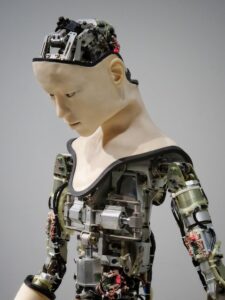 |
| business-world publicdomainvectors.org |
A couple of weeks a go I received a request to review an economic development research paper. One is not supposed to talk about a paper that has not been published and so I will reveal only that the invitation came from an international organization and the subject of research concerns the microeconomic sector in another country.
My task in reviewing the paper was merely to say whether it met the standards of research and not to weigh in on its ideology, which I can do here, as long as I keep the paper anonymous.
I rejected the paper for publication because it did not meet any of the standards listed in the reviewer instructions for a research paper. I categorize the paper as a policy advocacy paper pretending to be a research paper. I wondered if it was a test to see If I can recognize the difference between a real research paper and a fake one in this era of fake everything.
I submitted my review before the deadline, Today, one day before the deadline, I received notice that the paper was rejected for publication based on my review. That felt good!
 |
| Ian Schneider-unsplash |
The request was addressed to Dr Andersen. I am not a Doctor of anything, just an individual publishing independently. My status in the research community is a natural person doing independent research. This is significant given the paper excluded from its focus group “natural persons doing business” and claimed that such persons were not legal entities in the subject country.
I have not previously reviewed a research paper. I am not officially affiliated with any institution, other that Andersen Design, our family business, an institution in its own right and an American counterpart to the demographic in the country that is the subject of the research paper.
 |
| The home of Andersen Design from 1958-2017 |
The paper categorically excluded about half of the micro-economy from focus group.
However, the paper included several instances of characterizing the excluded sector. In review, I pointed out that almost half the microeconomy of the country was too large a segment to exclude from the focus group, and that characterizing a sector excluded from the research focus group was inconsistent with the claim that the research was based on perspective of the entrepreneurs.
 |
| Alex Nemo Hanse-unsplash |
The research papers that I have unofficially reviewed are in this post Were Itinerant Craftsmen Free Agents During the Bronze Age and Why Does it Matter? in which I took issue with the Jutland Archaeological Society’s opinion that there could not have been free agents among the itnerate craftsmen of the Bronze Age.
Rooted in Movement, Aspects of Mobility in Bronze Age Europe, a introduction published by the Jutland Archaeological Society, Constanze Rassmann quotes and contests Childe as he hypothesizes that the travelling metal smiths enjoyed a great deal of individual freedom…..Rassmann dismisses Childe’s interpretation, implicating that there is nothing to support it except for the evidence that metal smiths travelled around Europe during the Bronze Age. Rooted in Motion (the introduction), as the title suggests, develops evidentiary theory that the craftsmen were not free agents but either attached to elites who financed the crafts productions or other social structures “rather than being socially independent, as suggested by Childe (Childe1940, 163).
quoting myself in Were Itinerant Craftsmen Free Agents During the Bronze Age and Why Does it Matter?
Being addressed as a Doctor has the effect of institutionalizing my authority to have an opinion. My authentic authority to review the paper is based in my own background as an American micro economy entrepreneur. Between the papers I reviewed casually in my post above, and the paper under review, the common thread is institutional authorities who deny the existence of free agents operating outside the centralized system.
Although the paper is about a completely different country, the policies advocated by the paper are identical to policies advocated by Maine’s centralized economic development master minds, as if both policies were copied word for word from the same master rule book.
One of the characteristics attributed to the “loser (my word)” group, excluded from the paper’s focus group is “they don’t know about the benefits available to them”. My qualifications for reviewing the paper includes years spent independently researching Maine economic development system which distributes benefits. I have explored the system, looking for resources in support of my business but the system is built like a grid. One has to fit the grid because the grid is not adaptable to anything outside of its self. The grid does not know how to think outside the grid,
In example, KickStarter is not part of the centrally managed gridworks. I went to KickStarter online and looked up the country which is the subject of the report and found micro-economy campaigns. The research paper cited as an entrepreneurial failure that the business did not know about benefits (command economy) but it did not make any mention of KickStarter, a major funding resource for small businesses. KickStarter is outside of the command economy grid. In my own experience with the resources available through central management, there are no resources available to help one launch a KickStarter project. The paper that was the subject of the review was written from a perspective that was either unaware, or would not acknowledge that there are resources outside the centrally managed government system and within the free market economy. Consistent with the ideology of totalitarian systems, the command economy does not recognize anything that exists outside of its management.
 |
| Paul-Volkmer-unsplash |
The Creeping Command Economy
In contemporary economic development-speak, central management of the economy is categorized as “the command economy”. Today In many countries around the world there is a mix of a command economy and a free enterprise economy.
A command or planned economy occurs when the government controls all major aspects of the economy and economic production. In a command economy, it is the government that decides what to produce, how to produce goods and how to distribute goods and services within the economy. ,,,,,,A command economy works in contrast to a free market economy. In a free market economy, goods and services are produced by private enterprise with distribution occurring according to market forces. Economics Help.org
The command economy is credited with being influenced by Karl Marx. There are varying recipes for how to define it, some requiring actual government ownership of business, but to my interpretation those are just different degrees of progression leading away from a free agent system to a centrally controlled system. The command economy grows by incremental power acquisition with the ultimate goal to control every aspect of society. Ideologically the command economy and the free enterprise economy are diametrically opposed. The fact that they co-exist is a testimony to the incremental process by which one type of a culture is transformed into another, advanced through ever evolving branding. The words of Mussolini apply to the ideology behind the command economy. The paper I was reviewing uses language more subtle than Mussolini but is none the less comparable in its propensity to glamorize entrepreneurs assigned to the growth category and to denigrate entrepreneurs excluded from the focus group.
If, in the course of the past eight years, we have made such astounding progress, you may well think suppose and foresee that in the course of the next fifty or eighty years the onward trend of Italy, of this Italy we feel to be so powerful, so full of vital fluid, will really be grandiose. It will be so especially if concord lasts among citizens, if the State continues to be sole arbitrator in political and social conflicts, if all remains within the state and nothing outside the State, because it is impossible to conceive any individual existing outside the State unless he be a savage whose home is in the solitude of the sandy desert. (Mussolini Speech before the Senate, May 12, 1928, in Discorsi del 1928, Milano, Alpes, 1929, p. 109).
It was not hard to read between the lines and to spot inconsistencies, deceptive practices, and to place the paper in the context of what it was leaving out of the picture, which includes both the largest industry of the subject nation and the entire segment of the microeconomy which has not been centralized. or in other words, the free agent economy, which exists outside of the policies advocated by the paper.
The Automation Factor
To demonstrate growth, a business must demonstrate continual increase in both sales and employees. The requirement for a continual increase in employees identifies the measure of growth as conditioned by corporate welfare since, in the age of automation, increasing sales need not require increasing employees, just updating to state of the art equipment, while corporate welfare requires meeting a quota of employees paid at a designated rate.
‘
 |
| publicdomainvectors.org |
Although the paper maintained that one of the growth factors needed by any business is an entrepreneurial superstar, corporate welfare programs were implied throughout the paper without being identified forthrightly. Corporate welfare spins around hiring policies dictated by the State, arbitrarily mandating one of the most essential decisions that entrepreneurs make. Today corporate welfare mandates compromise two major factors affecting employment, one is remote workers, which I covered in Why Large Corporations Paying Remote Workers Less Could be Good For The Economy and the other is automation.
One of the guidelines used to grade entrepreneurs was whether the company equipment was updated and maintained with much made about keeping up with the state of the art. These days that means increased automation. Superstar entrepreneurs must have their pulse on the technology of tomorrow. Keeping up with the state of the art in equipment may mean reducing and not increasing the number of employees.
The justification for exporting jobs to developing nations is that it delivers lower priced consumer products for developed nations, The same rational applies to robotics.
Marco Rubio’s report Made in China, 2025, and the Future of American Business extensively examines the Chinese investment in Robotics.
Made in China 2025 reserves ambitious treatment for robotics and automated machinery. Unlike its goals for other sectors, MIC2025 does not set export market targets for robotics, opting instead for increase to domestic market presence. In the plan’s timeframe, the number of industrial automations is expected to increase tenfold to 1.8 million units, and have a 70 percent share of the domestic market – an amount up from the current 30 percent.172 A report by the International Federation of Robotics finds a growth rate in recent years suggesting this target is not out of reach, with a yearly growth rate in robotics sales of 27 percent in 2016, and further increases of 20 percent possible through the year 2020.173 Made in China, 2025, and the Future of American Business-Senator Marco Rubio
China’s robot production targets China’s home market. It benefits any country to develop their own robotics manufacturing, as a matter of national security. We should think carefully about automation whenever we have a choice as robotics can bring uninvited guests into our homes and public places.
Another report by Senator Rubio, American Investment in the Twenty First Century discusses how, since the turn of the century, the American macroeconomy has been decreasing investment in production, to increase investments in financial markets. Meanwhile China is becoming the producing nation of the world. Does America want China producing her robots, and does America want to be a producing nation again? The automation of production alters the impact of low cost global labor, which has sent so much manufacturing to developing nations.
Among the younger generation, many believe that robots will be doing everything and people will work in service, entertainment and health care, and maybe robots can do those jobs too!
 |
| Franck-V-unsplash |
Not everyone agrees that automation will replace jobs. In his report,Made in China, 2025, and the Future of American Business, Senator Rubio describes the belief that robots will take jobs from people as a primarily American idea that the rest of the world has moved past.
 |
| Disruptivo-unsplash |
I believe that automation will create new and different kinds of jobs for humans but it will not necessarily be synchronized. Old jobs may be lost before the new jobs evolve. But it will be a time to get creative about what those new jobs will be.
Whether to automate or not should be an entrepreneurial decision. The core corporate welfare agreement compromises decision making by private industry by using the number of workers employed in negotiations for benefits. However private industry will have to compete with automation. The question is will the manufacture of robots be done by robots, and who owns the robots and who owns the intellectual property rights?
A Two Way Street
 |
| What will be the significance of hand crafted production in the age of robotics? |
Questions for Research
- To what degree does corporate welfare make a company profitable?
- Would the company be profitable without corporate welfare? – If not, are taxpayer’s subsidizing stock market returns?
- Do employee quotas interfere with corporate decisions pursuant to remote workers and automation?
- Is or can corporate welfare inhibit companies from making adaptive changes to a new era when the nature of work is transforming?
- Do the employee quotas imposed by corporate welfare have a negative affect on corporate profits? If so does the corporate welfare compensate enough to make it an over all profitable deal? If yes, are taxpayer’s subsidizing stock market returns?
